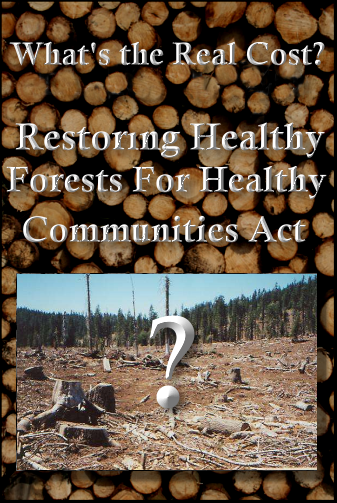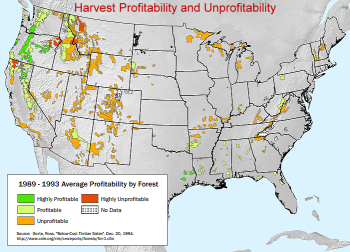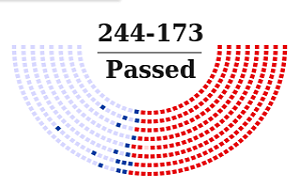
Deceptively
Named,
"Restoring Healthy Forests for Healthy Communities Act"
 |
The following are resources to show the danger that "Restoring Healthy Forests For Healthy Communities Act" is to the Public, as Federal Landowners, as well as to our public trust resources. Previously, our MT Rep. Steve Daines not only voted for this (H.R. 1526), but co-sponsored it. Now as a US Senator for Montana, he plans on submitting it through the US Senate. With both the Senate and the House having a majority this session, the roadblock in passing it through the Senate is no longer there. Opponents, including the White House and environmental groups, previously criticized the bill’s limited environmental reviews and its delegation of federal forest management to the states. Timber harvesting projects within these forest reserve revenue areas, are exempt from judicial review that is otherwise required under several key environmental statutes. This is one step towards transfer of public lands to the states by transferring authority of management to the states. Please see Art Canfields presentation below left. |
| Update:
Daines
seeks feedback on forest reform - "Daines
co-sponsored the Restoring Healthy Forests for Healthy Communities
Act, which passed the House in September but failed in the Senate.
Now that Republicans are in control in the Senate as well, forest reform continues to be a priority for Republicans, Lockman said. She said Daines would be involved in drafting legislation." FACT: The majority of Montana is classified as Unprofitable and Highly Unprofitable (MAP) with only a tiny corner of the northwest being classified as Profitable - Below Cost timber Sales by Ross Gorte. |
Republican
Dominated Privatization of Public Lands: H.R. 1526 Presentation
Economic Analysis of H.R. 1526
|
H.R.1526 - Restoring Healthy Forests for Healthy Communities Act - congress.gov H.R. 1526 Votes - govtrack
|
|
Just some of the issues with H.R. 1526: Exempts the following
categories of projects from provisions of the National Environmental
Policy Act (NEPA) of 1969 that require an environmental
assessment or impact statement before implementation (Sec. 104): Exempts forest health projects whose primary purpose is the salvage of dead, damaged, or down timber resulting from a wildfire occurring in 2013 from being subject to judicial review or any federal court injunction (Sec. 204). Prohibits a U.S. Court from issuing a restraining order, preliminary injunction, or injunction pending appeal in response to an allegation that the Secretary of Agriculture violated a procedural requirement when selecting, planning, or analyzing a project involving hazardous fuel reduction or the management or sale of national forest materials within a Forest Reserve Revenue Area (Secs. 104 & 204). Requires a plaintiff
challenging a project that involves hazardous fuel reduction or
the management or sale of national forest materials within a Forest
Reserve Revenue Area to post a bond or other security to
the court in order to cover the estimated costs, expenses,
and attorney fees of the Secretary of Agriculture as defendant within
90 days of the start of legal action, or the action will be dismissed
(Secs. 104 & 204). |
Your Advertisement Here |
Site designed and maintained by Kathryn QannaYahu






